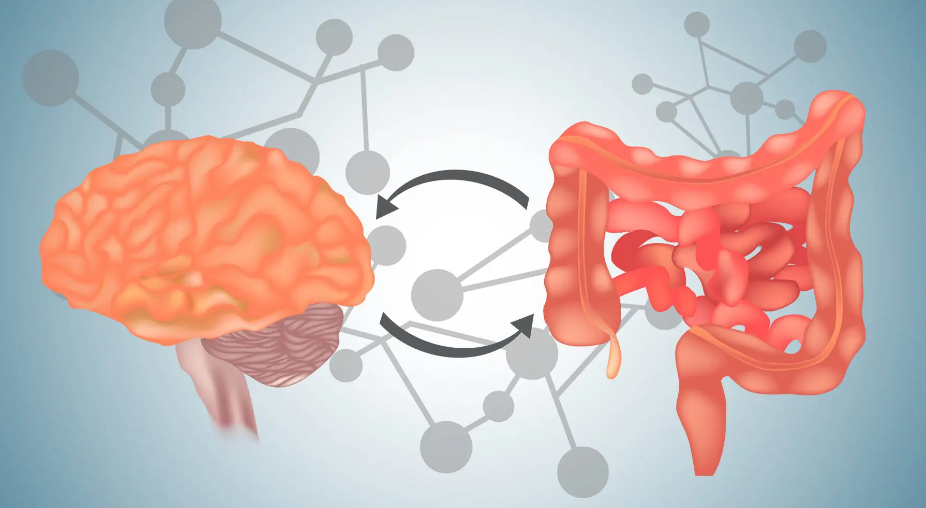
The Invisible Injury: Why Mental Health Care is Essential After a Concussion
Key Takeaways
-
Concussions are more than just physical brain injuries; they can cause significant psychological and emotional distress.
-
The emotional symptoms of a concussion, like anxiety, depression, and irritability, are as real and debilitating as the physical ones.
-
A comprehensive approach to recovery must include specialized Mental Health Therapy in Kansas City to address the unseen injury.
-
At Keystone Medical Group, our integrated care model helps patients recover faster and more completely by treating both the physical and emotional aspects of a concussion.
When most people think of a concussion, they picture a temporary headache, dizziness, or a few days of “brain fog.” They are often told to rest in a dark room and wait for symptoms to subside. What they aren’t told is that a concussion is a mild traumatic brain injury (TBI) that can leave lasting emotional and psychological scars, the “invisible injury.” As a leading concussion specialist in Kansas City, Keystone Medical Group understands that true recovery extends far beyond the physical. We know that to fully heal, you must address the emotional and psychological toll that a concussion can take.
The Unseen Battle: Emotional and Psychological Symptoms
While physical symptoms like headaches and fatigue are widely recognized, the emotional and psychological effects of a concussion are often overlooked. Yet, these symptoms can be the most challenging and disruptive to a patient’s life. According to the Centers for Disease Control and Prevention, these emotional symptoms are a direct result of the brain injury.
Common “Invisible” Symptoms:
-
Persistent Anxiety and Stress: Fear of re-injury or the stress of navigating medical appointments and work limitations can lead to a state of constant anxiety.
-
Mood Swings and Irritability: The brain’s regulatory systems can be affected, leading to unpredictable mood swings, emotional lability, and a short temper.
-
Depression: Feeling isolated, unable to return to hobbies, or struggling with cognitive function can lead to feelings of hopelessness and clinical depression.
-
Social Withdrawal: Fatigue, sensory sensitivity (to light or noise), and difficulty concentrating can make social interactions exhausting, leading to social isolation.
-
Fear-Avoidance Behaviors: Patients may begin to avoid activities that they believe might trigger their symptoms, such as exercising, driving, or being in loud environments.
These symptoms are not a sign of weakness; they are a direct consequence of the injury to the brain. Just as a physical injury requires a physical therapist, the psychological injury requires a dedicated mental health professional.
The Link Between Brain Injury and Emotional Distress
The brain is the control center for both our cognitive function and our emotions. A concussion can directly damage or disrupt the very neural pathways that regulate mood, impulse control, and emotional responses. Furthermore, the stress of the injury itself, the pain, the uncertainty of recovery, and the changes in daily life, can act as a powerful psychological stressor. Research from institutions like the Mayo Clinic has shown a strong correlation between concussions and the development of anxiety and depression. This is why a single-minded focus on physical rehabilitation is simply not enough.
A Holistic, Integrated Approach to Concussion Recovery
At Keystone Medical Group, we are Kansas City’s go-to concussion specialists because we provide a comprehensive, integrated approach that addresses every aspect of a patient’s recovery. We don’t just assess your physical symptoms; we also conduct a thorough mental health screening from the start.
Our treatment plans are personalized and combine:
-
Medical Management: Expert evaluation and guidance from our medical providers.
-
Physical and Cognitive Therapy: Targeted exercises to improve balance, vision, and cognitive function.
-
Specialized Mental Health Therapy: Our licensed therapists provide a safe space to process the trauma and develop coping mechanisms.
Our team collaborates closely to ensure that your physical and mental health treatments are coordinated. For example, a patient struggling with fear-avoidance behaviors after a concussion receives a treatment plan where physical therapy is designed to gradually reintroduce activities, while mental health therapy helps them manage the underlying anxiety. This integrated model is designed for a more efficient and complete recovery.
The Importance of Early Intervention
The emotional and psychological symptoms of a concussion can worsen over time if left untreated. Patients may develop chronic anxiety or depression, and the fear-avoidance cycle can become deeply ingrained, making it even harder to break. Early intervention is key. Addressing your mental health at the beginning of your recovery journey can help you build resilience, manage your symptoms more effectively, and prevent long-term complications. The Cleveland Clinic offers valuable information on understanding and managing post-concussion syndrome.
You may also want to consider a professional like a chiropractor for your physical care.
Frequently Asked Questions (FAQs)
Q: Are my emotional symptoms normal after a concussion? A: Yes, they are. Many people feel like their emotional responses are “not right,” but they are a very common consequence of a brain injury. Recognizing this is a crucial step towards healing.
Q: How does mental health therapy help with a physical injury? A: Mental health therapy helps you manage the stress, anxiety, and frustration that can slow down your physical recovery. By helping you cope with the emotional toll, therapy enables your body to focus on healing.
Q: What is the difference between a concussion and a TBI? A: A concussion is a type of mild traumatic brain injury (TBI). All concussions are TBIs, but not all TBIs are concussions.
Q: How do you treat the psychological symptoms of a concussion? A: We provide a safe space for you to talk about your experience and your feelings. We use evidence-based therapies like cognitive-behavioral therapy (CBT) to help you understand and manage your symptoms.
Don’t Let the Invisible Injury Hold You Back
If you or a loved one are struggling with the emotional aftermath of a concussion, don’t wait to get help. At Keystone Medical Group, we are here to provide the comprehensive care you need to make a full and complete recovery. We are committed to helping you heal from both the seen and unseen injuries, so you can get back to living a vibrant, confident life.

Cognitive Therapy After a Kansas City Car Accident
Cognitive Therapy After a Kansas City Car Accident: 5 Warning Signs You Shouldn’t Ignore After a car accident, most people focus on physical injuries—broken bones,

Three Systems That Hold the Key to Concussion Recovery in Kansas City
Three Systems That Hold the Key to Concussion Recovery in Kansas City Concussion symptoms that linger after a car accident can be frustrating and confusing

Navigating the Aftermath: A Checklist for Emotional and Physical Well-being Post-Accident in Kansas City
Navigating the Aftermath: A Checklist for Emotional and Physical Well-being Post-Accident in Kansas City The moments and days following a car accident in the Kansas

Supporting the Supporter: A Guide for Family and Friends of Injury Victims in Kansas City
Supporting the Supporter: A Guide for Family and Friends of Injury Victims in Kansas City When a loved one suffers a personal injury in the

Overcoming Fear-Avoidance Behaviors After an Accident in Kansas City
From Fear to Forward Motion – Overcoming Fear-Avoidance Behaviors After an Accident in Kansas City After an auto accident in the Kansas City metro area,

Beyond Physical Pain: Managing the Emotional Toll of a Personal Injury
Beyond Physical Pain: Managing the Emotional Toll of a Personal Injury Key Takeaways The emotional and psychological impact of a personal injury is just as


